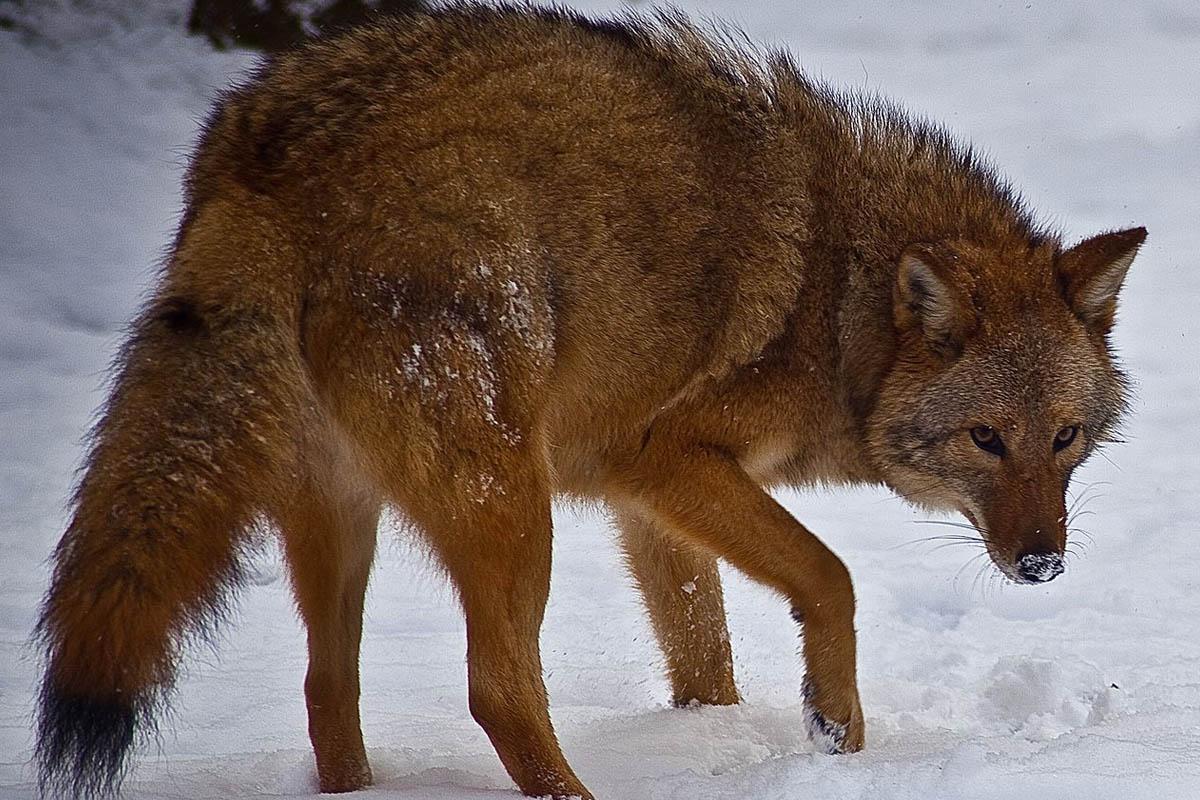Y: This weekend, my sister’s trail camera photographed a coywolf near her farm! It was enormous!
D: Are you sure it wasn’t a German shepherd? I thought coywolves were an urban legend. Plus, what would it be doing so close to town?
Y: Well it turns out coyote-wolf hybrids are real. Eastern wolves and coyotes have been interbreeding more frequently over the past several hundred years, and now their hybrids are widespread from the Great Lakes region to the east coast.
D: Hmm. You don’t really hear about wolves in the eastern United States anymore.
Y: That’s true! Eastern wolves now mainly live in Canada, where they can find suitable habitat. Forests are an important part of the eastern wolf niche; remember, a niche describes the suite of conditions a species needs to be successful. In the eastern United States, humans have significantly altered the landscape, so wolves became less successful than their other canine counterparts. This left an opening for coyotes, and hybrids of the two species, to move into those areas where wolves used to live.
D: But wait, I thought hybrids were an evolutionary dead end; I know mules, which are hybrids between donkeys and horses, normally can’t reproduce.
Y: That’s often true. But in this case, hybrids are fertile, and are able to take advantage of habitat where wolves no longer live. Scientists have compared eastern wolves, coyotes, and their hybrids in terms of temperature requirements, habitat needs, and tolerance of human disturbance. They found that hybrids use conditions intermediate to wolves and coyotes, and this may make them well suited for living in human-disturbed areas.
D: Well it sure sounds like life is good in the hybrid zone!









